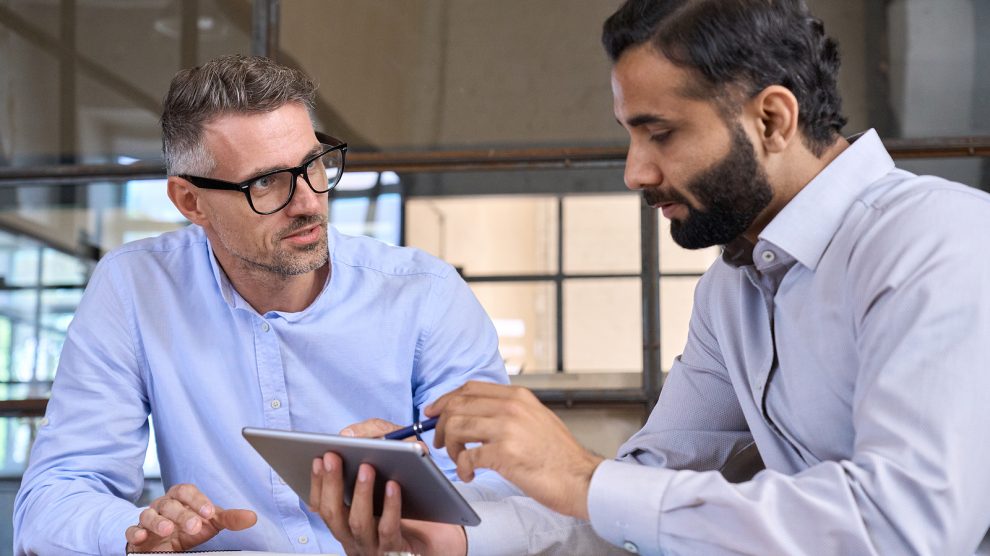In a landscape where anything less than comprehensive security is no security at all, only half of Central and Eastern European companies have a comprehensive cybersecurity strategy.
Cybersecurity has gone from being a backroom IT concern, to being a boardroom issue. Which makes a lot of sense. The cost of cybercrime to the global economy grew to a staggering 5.5 trillion euros in 2020, double the amount in 2015.
- Change is the only constant — meeting the challenges of continuous technological transformation
- Governments are the catalyst for digitalisation in CEE
- Promoting responsible AI adoption – a key step in CEE’s AI journey
Cybersecurity gives business leaders confidence to embrace the shift to the digital economy and reap the benefits of their investment in it. Europe’s data economy will be worth 829 billion euros by 2025, and investments in ‘digital’ and ‘sustainability’ will create up to 5.7 million new jobs across the region by the end of the decade.
But as the world around us becomes more digital, the definition of what it means to be safe and resilient is also evolving.
And as businesses digitise, it’s important to recognise that the benefits of hybrid work, smart supply chains and intelligent internet of things come with new and different risks to manage.
So, what does it mean, today, to be secure?
Security is a mindset
One thing is clear – cybersecurity cannot and should not be treated as a product that gets added on top of or parallel to other business software solutions. Increasingly, companies rely on security by design, meaning any product and service, is designed with built-in security elements.
Think of it this way – when you buy a house, there are (usually!) already doors and windows with proper locks right from the start, you don’t need to build a wall around a door-less home.
By weaving security throughout the fabric of your organisation – culture, operations and systems – you’re better equipped to both protect against an attack before it happens and respond and recover as quickly as possible if it does. This kind of protection isn’t simply nice-to-have, it’s fundamental to better business resilience. Ultimately, security is a mindset.
Take the example of Romanian robotic process automation (RPA) software provider, UiPath. The global company’s software robots interact with computer systems just like a human being would, ingesting data, responding to it, and communicating with other systems – making it an attractive target for a number of cyber threats across security, privacy and compliance.
As such, UiPath uses Microsoft 365 and various Azure security services to create a holistic cybersecurity strategy that connects both the security and engineering teams.
From do-it-yourself to do-it-together
Examples like UiPath point to a shift in the mindset we’re seeing across the market – where the core idea of what it means to be ‘safe and resilient’ has evolved. Countries and organisations are moving from a strategy of “do it on your own” to inter-dependence with peers with shared values.
Cybersecurity is a prime example. There used to be the perception that security means having your own datacenter. As technology evolves – and real-life happens – it’s becoming clear that protecting digital assets has now become more important than its physical location.
For many organisations that means switching from their own datacenter to highly secure and trusted public cloud services, which monitor, assess and respond to attacks. Cloud-based solutions present many advantages in managing evolving threats and staying on top of the game.
For example, at Microsoft we monitor more than 43 trillion security signals daily across our network – including the cloud, endpoints and the edge – so we can catch what others miss.
In 2021, we blocked over 70 billion threats. Our comprehensive security solution helps protect our customers’ entire digital estate, whether they have adopted a single, multi- or hybrid cloud approach. This helps them simplify their approach to security through consolidation – and realise up to 60 per cent cost savings, so they can do more with less.

Product, platform and partnership
The global events of the last few years have brought unprecedented change to the physical and digital worlds. And, relatedly, the threat of cybercrime is constantly growing. As Siim Sikkut, former CTO of the Estonian government, once said, “if we are not good at cybersecurity, we cannot be digital”.
Yet, according to an IDC study commissioned by Microsoft, only half of Central and Eastern European companies have a comprehensive cybersecurity strategy. In a landscape where anything less than comprehensive security is no security at all.
So, as leaders, we have to ensure our organisations are working together towards a more safe and resilient digital economy. At Microsoft, we’re committed to playing our part in helping build a more secure digital future for Central and Eastern Europe; working with partners and peers who share the same values to provide our customers with the most comprehensive, integrated solutions available. Simply, to secure more with less.
This article is part of Digital Future of CEE, a regional discussion series, powered by Emerging Europe, Microsoft and PwC.
Unlike many news and information platforms, Emerging Europe is free to read, and always will be. There is no paywall here. We are independent, not affiliated with nor representing any political party or business organisation. We want the very best for emerging Europe, nothing more, nothing less. Your support will help us continue to spread the word about this amazing region.
You can contribute here. Thank you.


